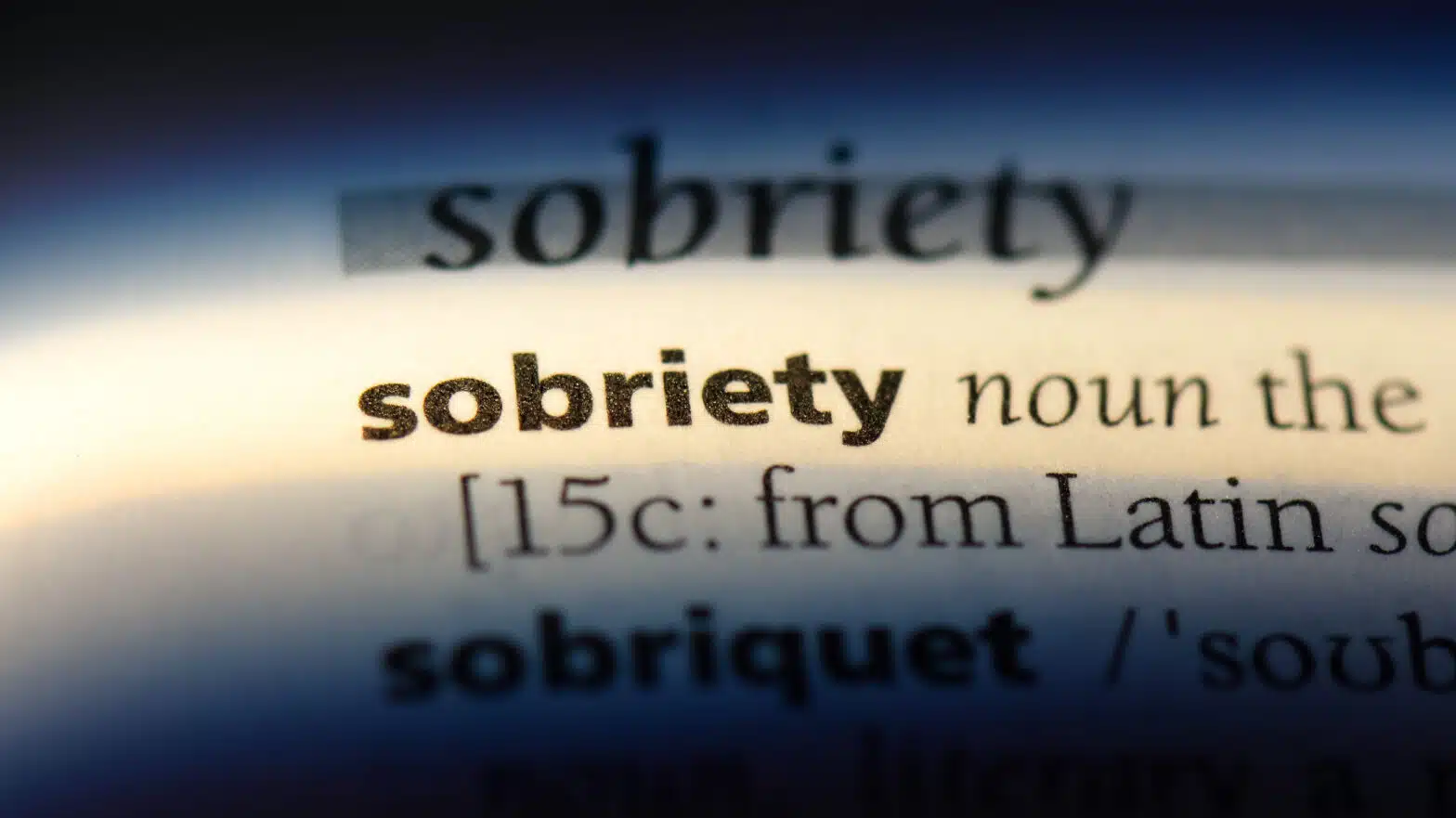Defining Sobriety In Early Recovery
Sobriety is not merely the absence of substances but rather a journey of self-discovery guided by a person’s own principles. As individuals progress in their recovery, their definition of sobriety may evolve.

At its core, addiction recovery refers to abstaining from the use of alcohol or drugs that negatively impact one’s life.
However, early sobriety encompasses more than just abstaining from drug use or alcohol abuse. Sobriety also involves a personal transformation with many distinct layers.
A Multifaceted Definition Of Sobriety
Living a sober life involves various dimensions of personal growth that go beyond mere abstinence from drugs or alcohol.
Together, the many different dimensions of sobriety form a framework for wellness and fulfillment in recovery.
Addiction treatment professionals typically consider the physical, mental, emotional, and spiritual aspects of sobriety while providing support for early addiction recovery.
Physical Sobriety
Physical sobriety typically refers to abstaining from the use of alcohol or drugs and maintaining a state of physical health free from the influence of substances.
Physical sobriety often entails detoxification from drugs or alcohol, followed by a commitment to abstain from substance use and engage in behaviors that promote physical health and recovery.
This may include adopting a healthy lifestyle including regular exercise, nutritious foods, and good sleep hygiene, all while avoiding substances that can harm the body.
Physical sobriety is the first aspect of recovery, providing a solid basis for people to address their substance abuse and mental health while pursuing long-term wellness.
Mental Sobriety
Mental sobriety refers to achieving clarity in one’s thoughts without the influence of substances.
It involves cultivating a state of psychological well-being that enables people to navigate life’s challenges without resorting to harmful coping mechanisms.
Mental sobriety encompasses various inner aspects including emotional regulation, cognitive functioning, and psychological resilience.
Mental sobriety often requires people to address underlying issues like trauma, depression, and co-occurring mental health disorders.
Emotional Sobriety
Emotional sobriety occurs when a person reaches a state of balance in their emotional life without the influence of addictive substances.
It involves recognizing one’s emotions, both positive and negative, without judgment or avoidance, and learning to respond to them in adaptive ways.
Emotional sobriety also entails cultivating healthy coping mechanisms, such as mindfulness and self-care, and seeking support from others to effectively manage stress.
Ultimately, emotional sobriety is about reaching inner peace to support a fulfilling life in recovery.
Spiritual Sobriety
Spiritual sobriety is a concept that goes beyond physical and mental recovery. This aspect of healing focuses on developing a sense of purpose and a connection to something greater.
It involves cultivating a deeper understanding of one’s values, beliefs, and principles, and aligning actions with these spiritual foundations.
Spiritual sobriety does not necessarily imply adherence to a specific religious tradition but rather encompasses a broader sense of spirituality that transcends religious boundaries.
It may involve practices such as meditation, prayer, or engaging in activities that foster a sense of connection with the world around us.
For people in recovery, spiritual sobriety can help them find meaning and purpose in their journey of recovery.
Defining Sobriety For Yourself
Defining sobriety for yourself is a personal process that entails exploring your values, goals, and aspirations in the context of recovery.
For many, sobriety goes beyond mere abstinence from alcohol or drugs. Rather, it encompasses a wider commitment to self-improvement, wellness, and growth.
Sobriety may mean reclaiming control over your life, freeing yourself from addiction, and embracing a healthier, more fulfilling way of living.
It could also involve cultivating self-awareness, practicing self-care, or fostering positive connections with yourself and others.
Ultimately, each person in recovery has the chance to evaluate the changes they’d like to make and define sobriety for themselves.
Challenges And Obstacles In Long-Term Sobriety
Long-term sobriety, while incredibly rewarding, comes with its own set of challenges and obstacles.
Navigating these challenges may require support from therapists, support groups, or other addiction recovery resources.
Cravings And Triggers
Even after years of sobriety, some people may still experience cravings triggered by certain people, places, or emotions associated with their past substance use.
Social Pressure
Social situations where alcohol or drugs are present can be challenging, as individuals in long-term recovery may feel pressure to participate or may face scrutiny for abstaining.
Complacency
After achieving a period of stability, some people may become complacent in their recovery efforts, leading to a relaxation of vigilance and an increased risk of relapse.
Co-occurring Disorders
Many people with addiction also have underlying mental health issues such as depression, anxiety, or trauma. Managing these co-occurring disorders in the long term can be challenging.
Life Transitions
Major life changes such as starting a new job, ending a relationship, or experiencing the death of a loved one can be triggers for relapse if not handled with proper coping mechanisms.
Boredom And Isolation
In the absence of substances, some people may struggle with feelings of boredom or isolation, especially if they lose social connections that were primarily based on substance use.
Learn About Substance Use Treatment At Spring Hill Recovery
If you or a loved one is experiencing substance abuse, professional treatment programs can help. Contact our specialists today to learn more.
- National Institute on Mental Health (NIMH) https://www.nimh.nih.gov/health/topics/substance-use-and-mental-health
- National Library of Medicine: PubMed https://www.ncbi.nlm.nih.gov/pmc/articles/PMC4553654/
- National Library of Medicine: PubMed https://www.ncbi.nlm.nih.gov/pmc/articles/PMC1852519/
- National Library of Medicine: PubMed https://www.ncbi.nlm.nih.gov/pmc/articles/PMC6759672/
- National Library of Medicine: PubMed https://www.ncbi.nlm.nih.gov/pmc/articles/PMC6528177/

